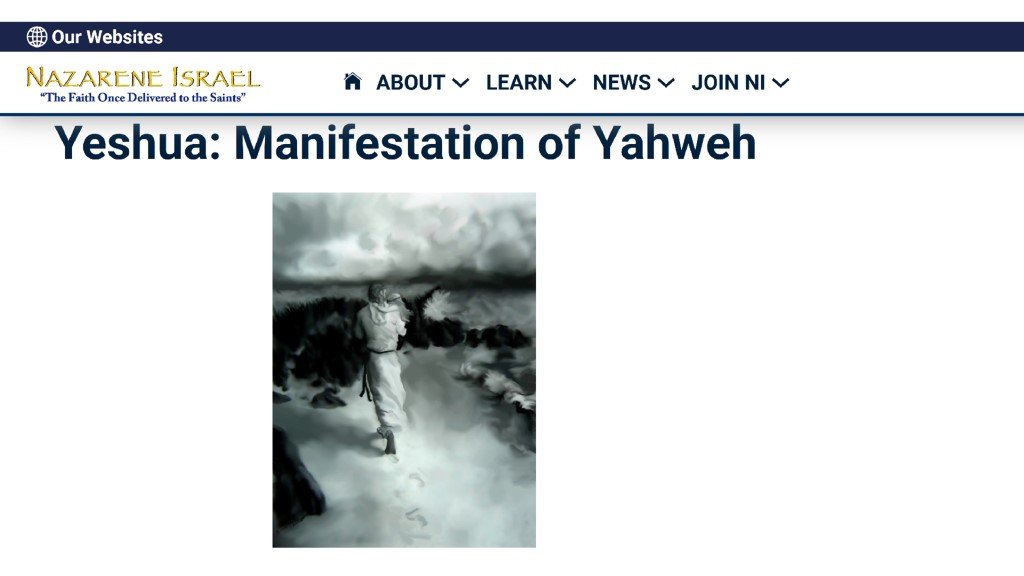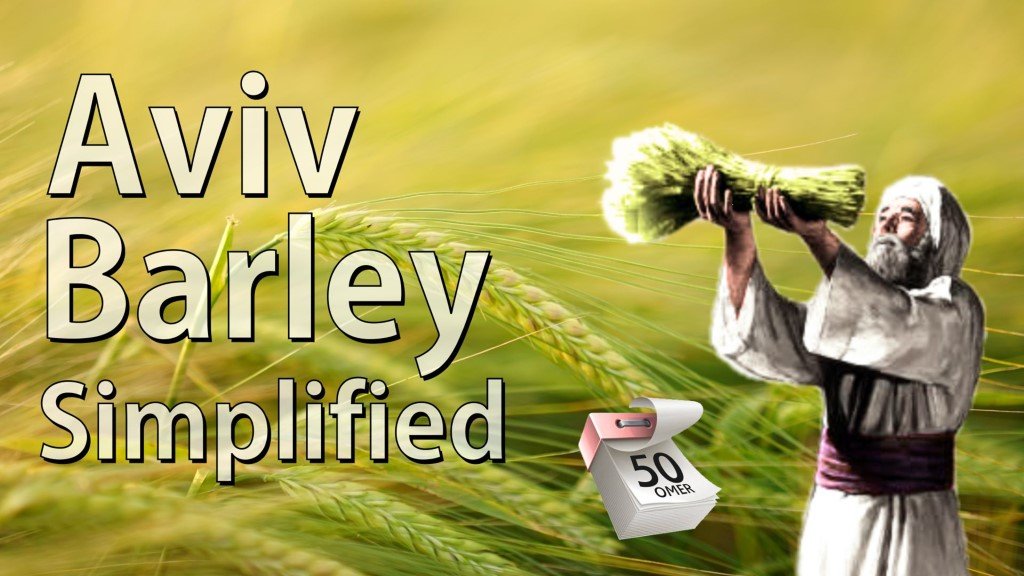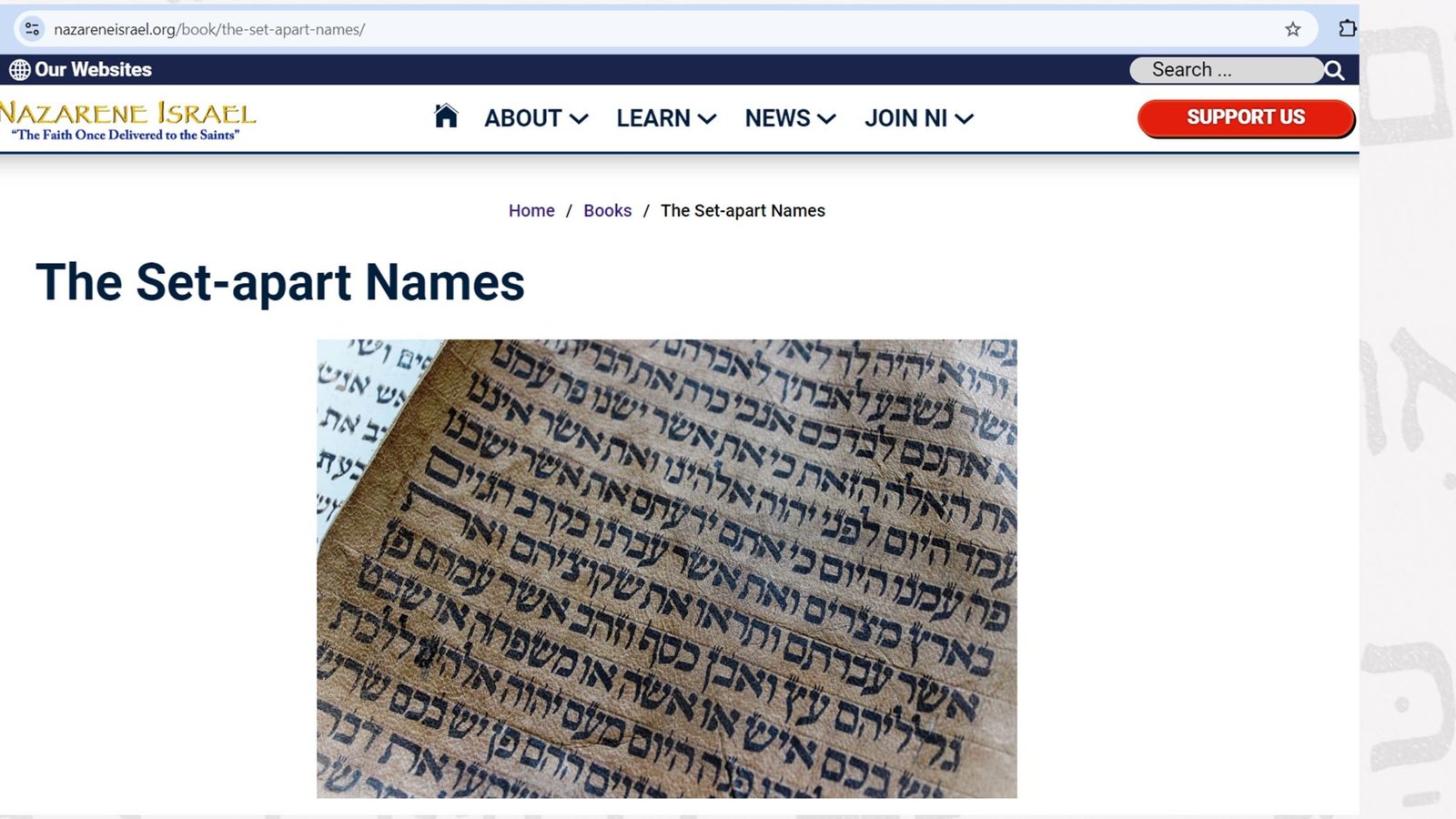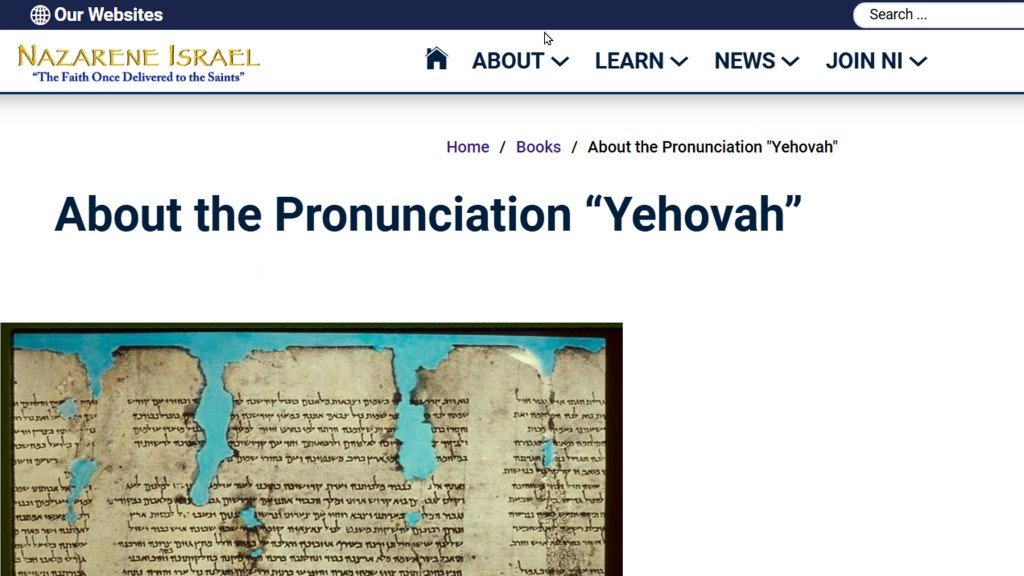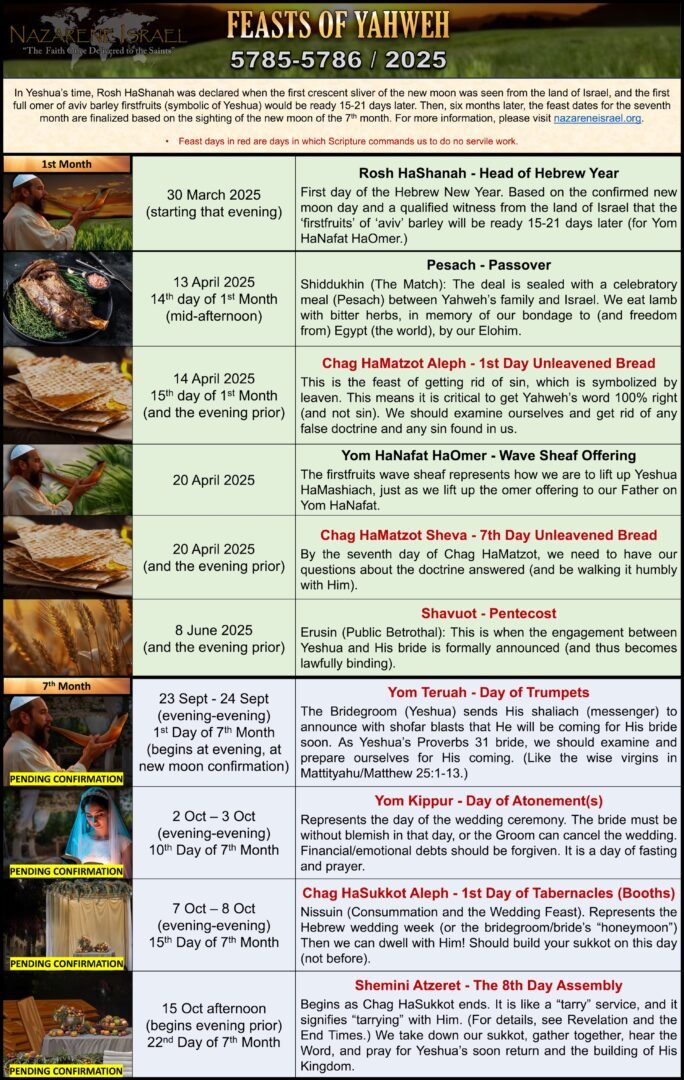Parashat Pinchas 5785/2024 (פָּרָשָׁה פִּינְחָס) reading:
Bemidbar (Num.) 25:10-30:1
Melachim Aleph (1 Kgs.) 18-19, Tehillim (Pslm.) 106
Qorintim Aleph (1 Cor.) 10, Yochanan (Jn.) 2
Fair Use: Pro-Israel Content, Academic Content, Autistic Content:
The following notes are a summation only of the video dialogue.
Welcome to NI’s midrash on Parasha Balak. “Parasha Pinchas 5785 (2024): Showdown! Yahweh vs. Baal!” explains: how the parable of the three measures of meal represents idolatry (leaven) found in Judaism, Christianity, and Islam. It highlights the Orthodox Jewish daily death curse (Birkhat HaMinim) spoken against all Christians and non-Orthodox sects and the Original Faith Yeshua HaMashiach taught His followers to keep. And calls the Two Houses to end the historical Ramban cycle of Baal (‘Lord’) worship and for Judah and Ephraim to form the Genesis 35 Alliance upon the written Torah of Moshe.
Previous question: The mission
From time to time, we receive questions about the mission. The majority of Ephraim seems to not understand what the mission is, and how to build the Kingdom Yahweh Elohim desires and commands. We explain more on the Genesis 35 Alliance in this parasha.
“Can you please please talk about something else than battling with them about the Talmud, what they do, what they say? And concentrate on teaching the Word? Please.”
Ivrim (Hebrews) 5:12
12 For though by this time you ought to be teachers, you need someone to teach you again the first principles of the oracles of Elohim; and you have come to need milk and not solid food.B’reisheet (Genesis) 2:15
15 Then Yahweh Elohim took the man and put him in the garden of Eden to tend and keep it.B’reisheet (Genesis) 12:3
3 “I will bless those who bless you, And I will curse him who curses you; And in you all the families of the earth shall be blessed.”
Genesis 35 Alliance
B’reisheet (Genesis) 35:11-12
11 Also Elohim said to him: “I am Elohim El Shaddai. Be fruitful and multiply; a nation and a company of nations shall proceed from you, and kings shall come from your body.
12 “The land which I gave Abraham and Isaac I give to you; and to your descendants after you I give this land.”

Birkhat HaMinim
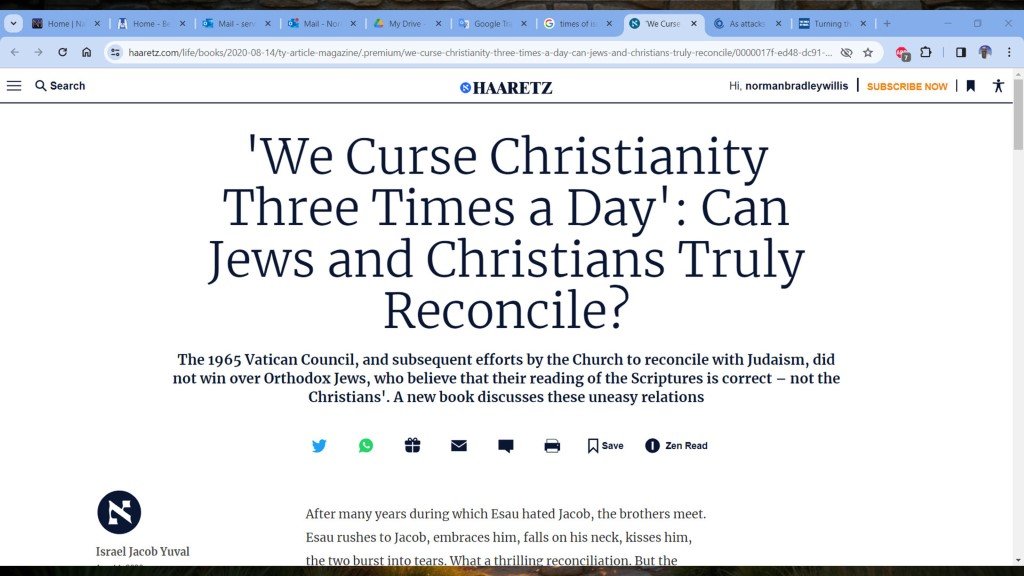
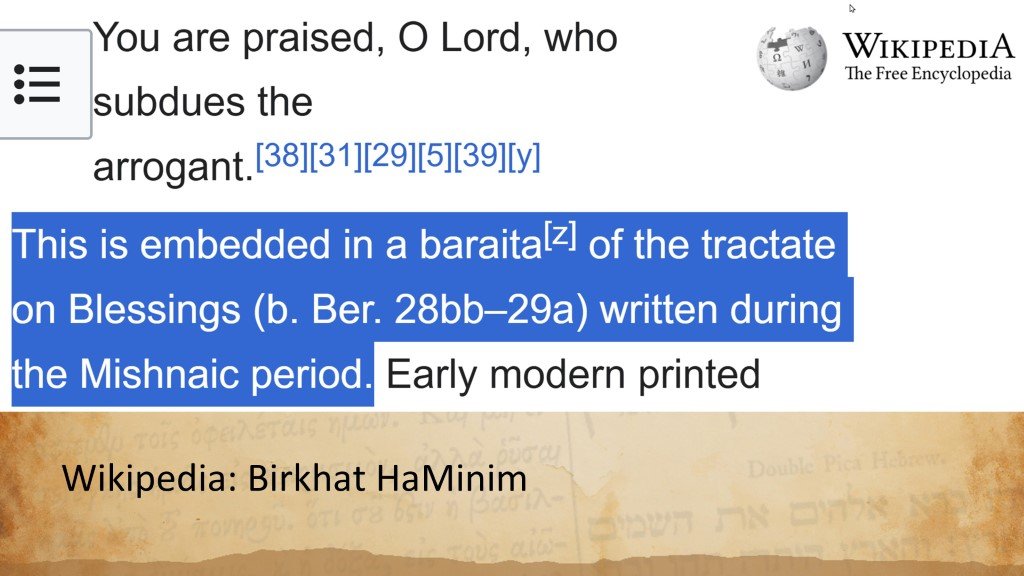
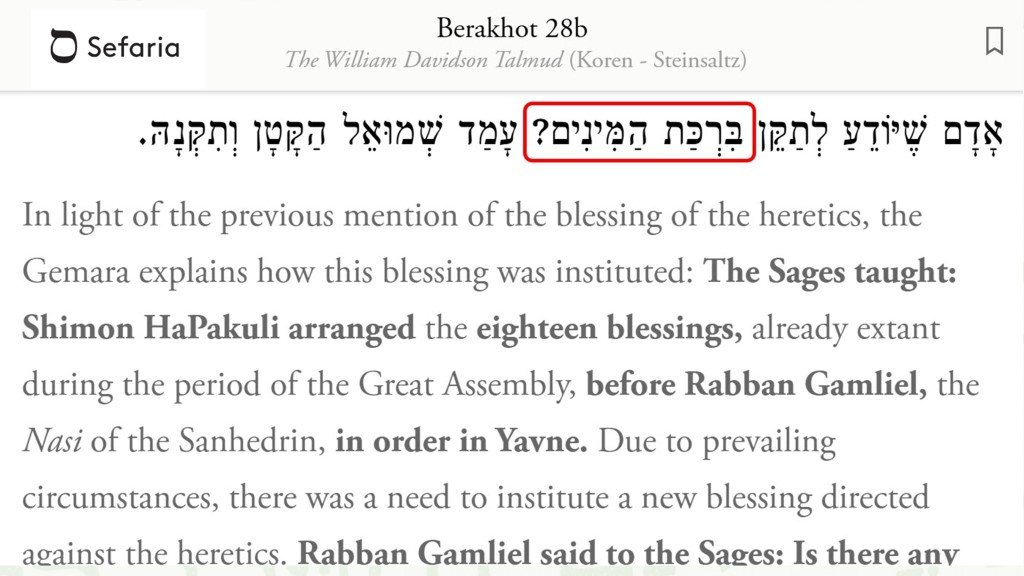
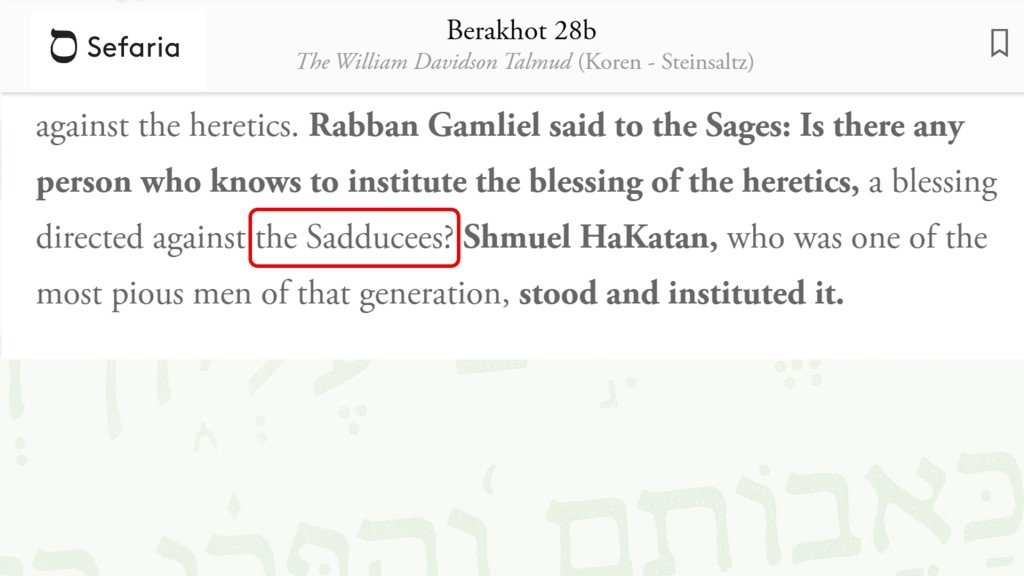
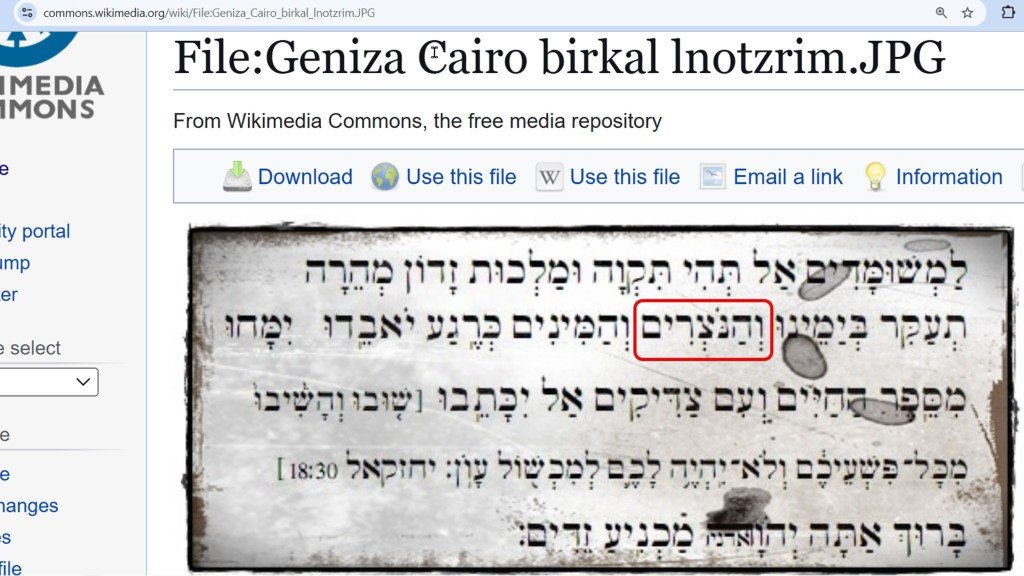
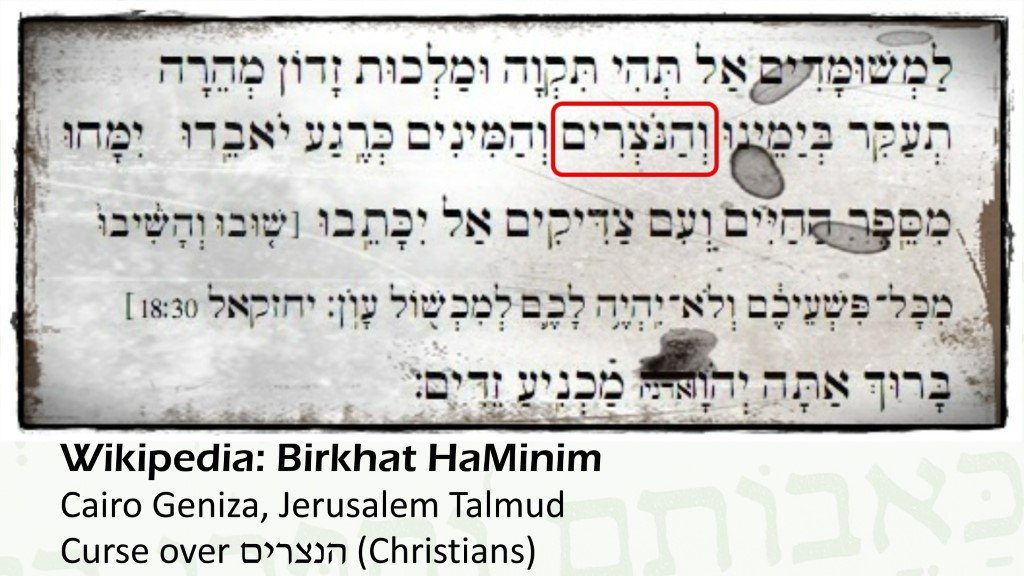
Yehezqel (Ezekiel) 37:16-17
16 “As for you, son of man, take a stick for yourself and write on it: ‘For Judah and for the children of Israel, his companions.’ Then take another stick and
write on it, ‘For Joseph, the stick of Ephraim, and for all the house of Israel, his companions.’
17 “Then join them one to another for yourself into one stick, and they will become one in your hand.”
Ramban cycles and three measures of meal
What are the three measures of meal? How does Yeshua’s parasha of theleaven hidden in three measures of meal relate to the three main Abrahamic faiths? And what is needed to purge out this leaven?
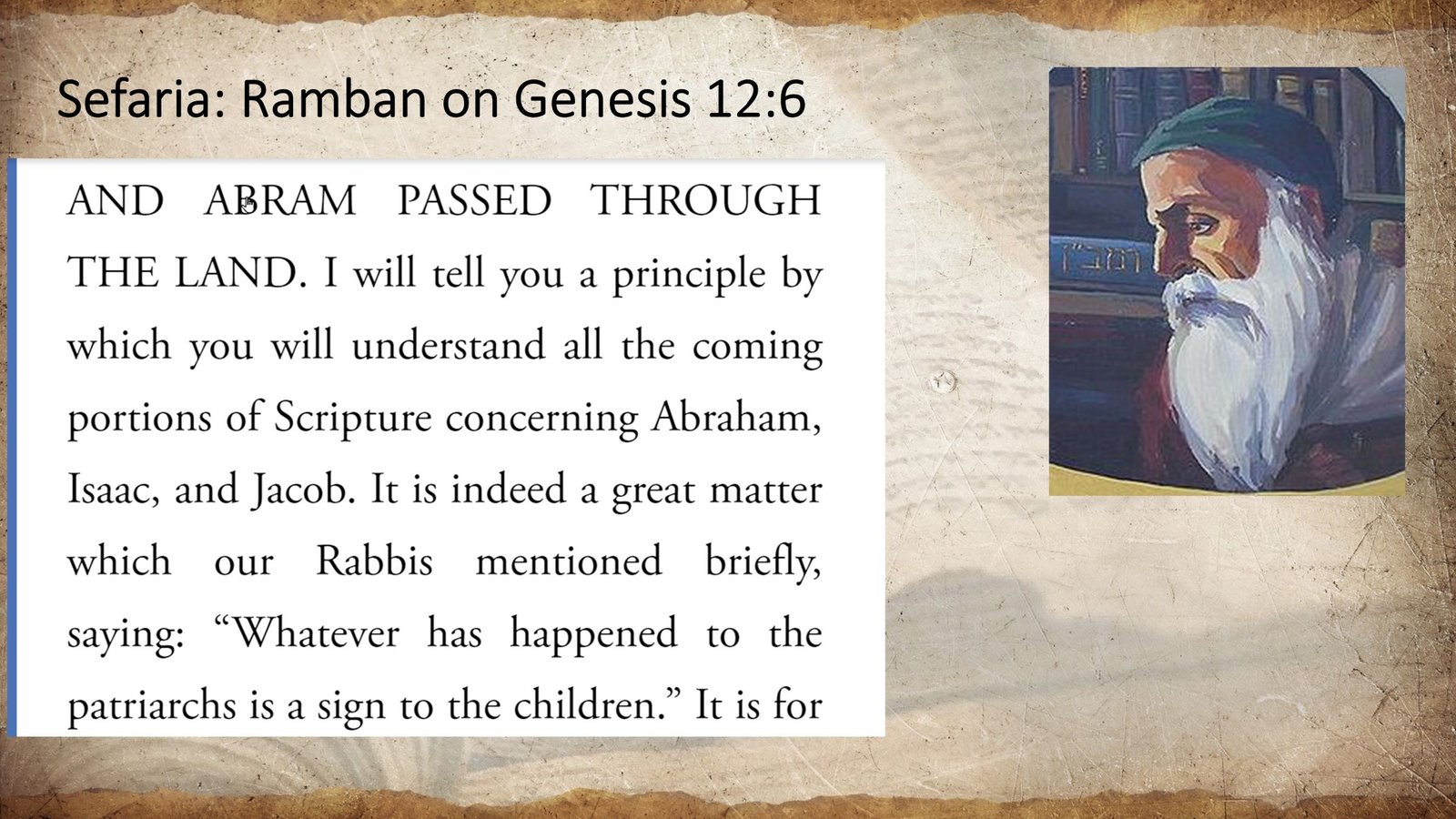
B’reisheet (Genesis) 18:6
6 So Avraham hurried into the tent to Sarah and said, “Quickly, make ready three measures of fine meal; knead it and make cakes.”Mattityahu (Matthew) 13:33
33 Another parable He spoke to them: “The kingdom of heaven is like leaven, which a woman took and hid in three measures of meal till it was all leavened.”


Contending for ‘The Faith’
What does it mean to contend for the faith once for all delivered to the saints? What does this look like in Ephraim, today?
Yehudah (Jude) 1:3
3 Beloved, while I was very diligent to write to you concerning our common salvation, I found it necessary to write to you exhorting you to contend earnestly for the faith which was once for all delivered to the saints.Ma’asei (Acts) 20:29-30
29 For I know this, that after my departure savage wolves will come in among you, not sparing the flock.
30 Also from among yourselves men will rise up, speaking perverse things, to draw away the disciples after themselves.Romim (Romans) 16:17-18
17 Now I urge you, brethren, note those who cause divisions and offenses, contrary to the doctrine which you learned, and avoid them.
18 For those who are such do not serve our Adon Yeshua Mashiach, but their own belly, and by smooth words and flattering speech deceive the hearts of the simple.TimaTheus Aleph (1 Timothy) 6:3-4
3 If anyone teaches otherwise and does not consent to wholesome words, even the words of our Adon Yeshua HaMashiach, and to the doctrine which accords with righteousness,
4 he is proud, knowing nothing, but is obsessed with disputes and arguments over words, from which come envy, strife, reviling, evil suspicions…TimaTheus Aleph (1 Timothy) 6:5
5 …useless wranglings of men of corrupt minds and destitute of the truth, who suppose that righteousness is a means of gain. From such withdraw yourself.
Pinchas: multiple themes:
What does it look like to have zeal for Yahweh Elohim? We will examine examples throughout the Torah, Haftarah, and Brit Chadasha.
1. Pinchas’ eternal priestly blessing for zeal.
2. War with Midian (and the Ba’al of Peor).
3. Yahweh vs. The Lord (aka Ba’al).
4. Calendar Feasts and the Missing 240/241 years.
5. Showdown: Eliyahu, the Priests of The Lord (Ba’al), and Easter.
6. Yeshua’s blessing for zeal.
7. Flee idolatry & hidden idolatry.
Who and where is Midian?
We discuss the background of Midian, Abraham’s concubine Keturah, and what it means that Abraham sent his son of the concubines ‘to the country of the east’
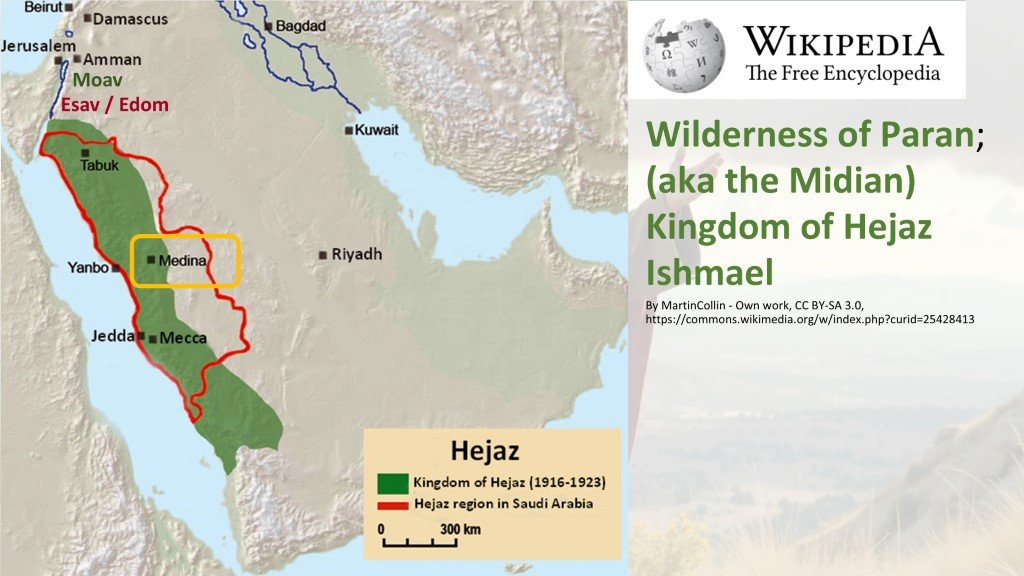
B’reisheet (Genesis) 25:1-2
1 Avraham again took a wife, and her name was Keturah.
2 And she bore him Zimran, Jokshan, Medan, Midian, Ishbak, and Shuah.B’reisheet (Genesis) 25:5-6
5 And Avraham gave all that he had to Yitzhak.
6 But Avraham gave gifts to the sons of the concubines which Avraham had; and while he was still living he sent them eastward, away from Yitzhak his son, to the country of the east.Wikipedia: Keturah
According to one opinion in the midrashic work Genesis Rabbah, Keturah and Hagar are names for the same person, whom Abraham remarried after initially expelling. [13] This opinion was adopted and popularized by 11th-century scholar Rashi. [5][14]Wikipedia: Keturah
…Possible justifications for this opinion include the fact that Keturah is referred to 1 Chronicles 1:32 as Abraham’s concubine (in the singular), [15] and several other verses which suggest that the descendants of Hagar and Keturah lived in the same territory, or formed asingle ethnic group.Divre HaYamim Aleph (1 Chronicles) 1:32
32 Now the sons born to Keturah, Avraham’s concubine, were Zimran, Jokshan, Medan, Midian, Ishbak, and Shuah. The sons of Jokshan were Sheba and Dedan.B’reisheet (Genesis) 25:5-6
5 And Avraham gave all that he had to Yitzhak.
6 But Avraham gave gifts to the sons of the concubines which Avraham had; and while he was still living he sent them eastward, away from Yitzhak his son, to the country of the east.
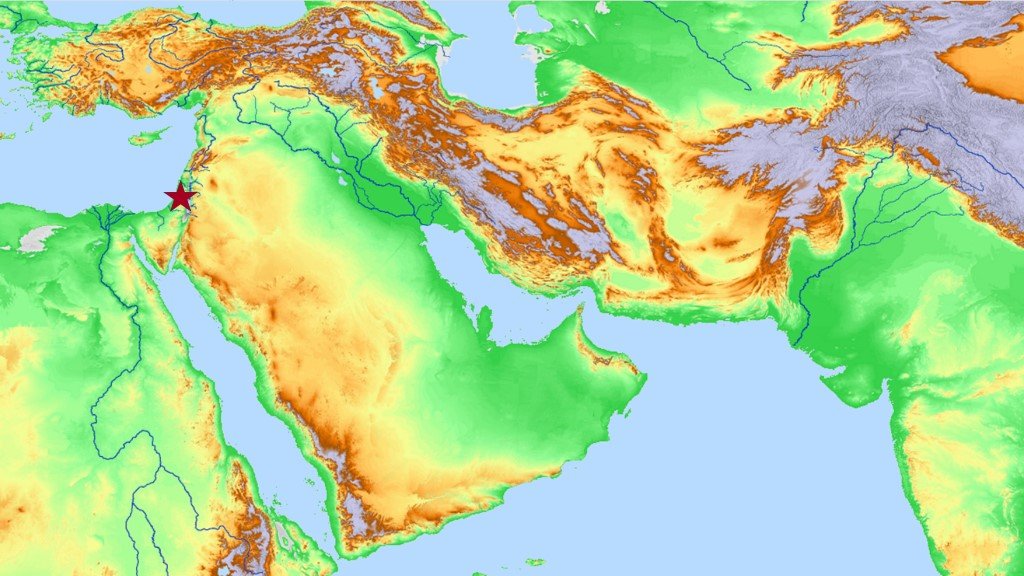
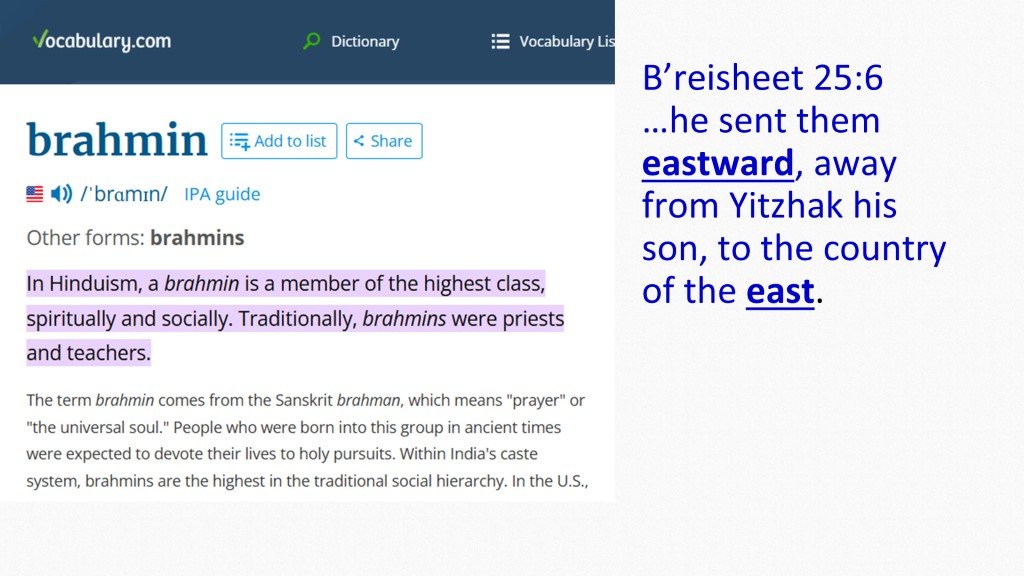
Japanese and Hebrew similarities
We examine possible connections between the eastern Shinto religon and the Hebrews, and how these similarities could be due to Abraham sending his sons of his concubines eastward.
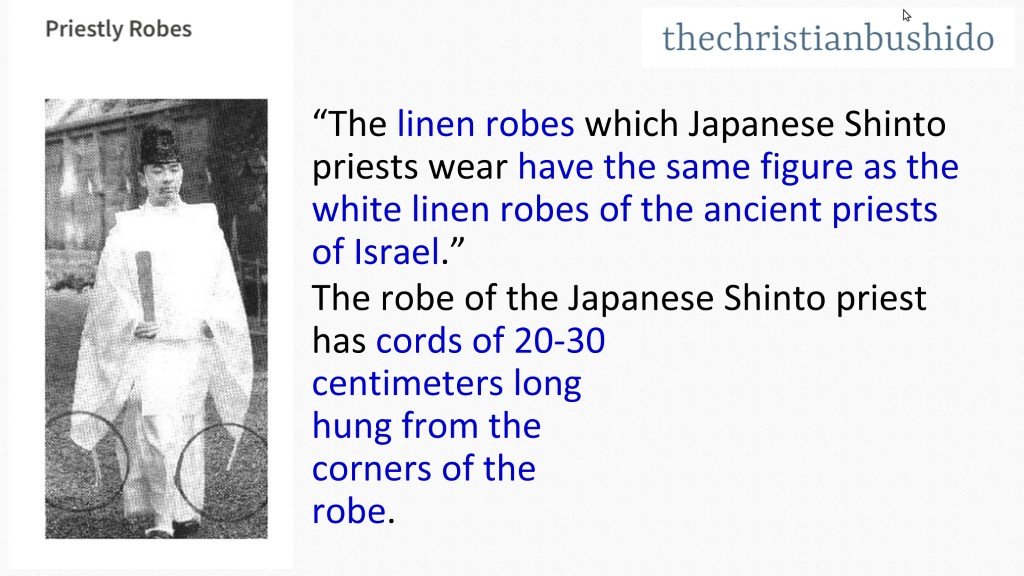
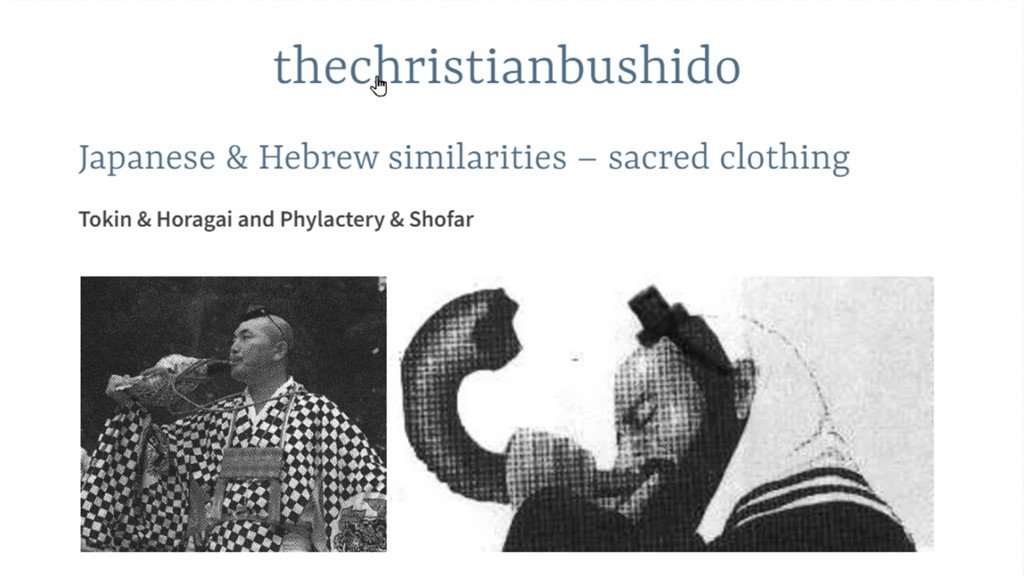
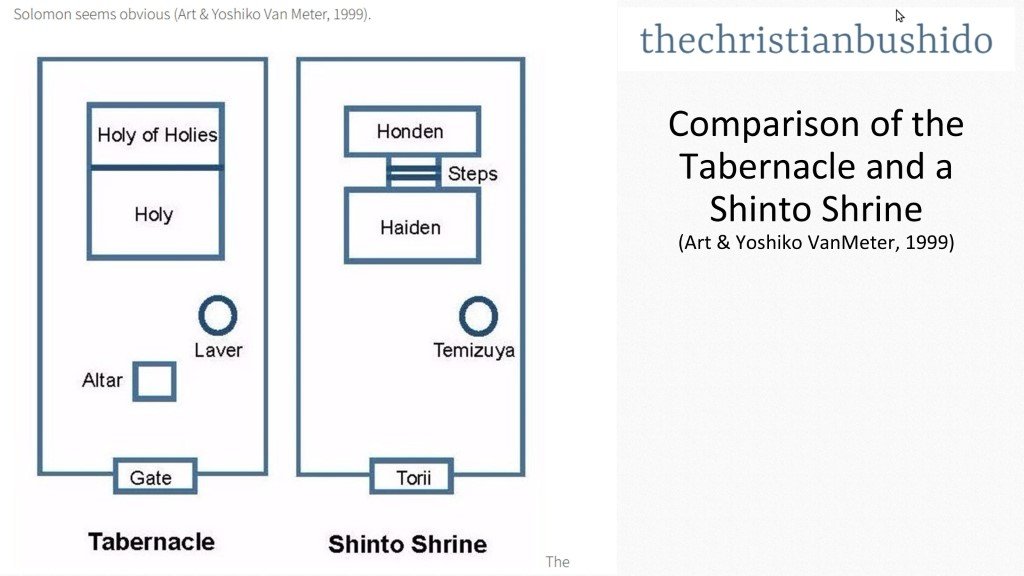
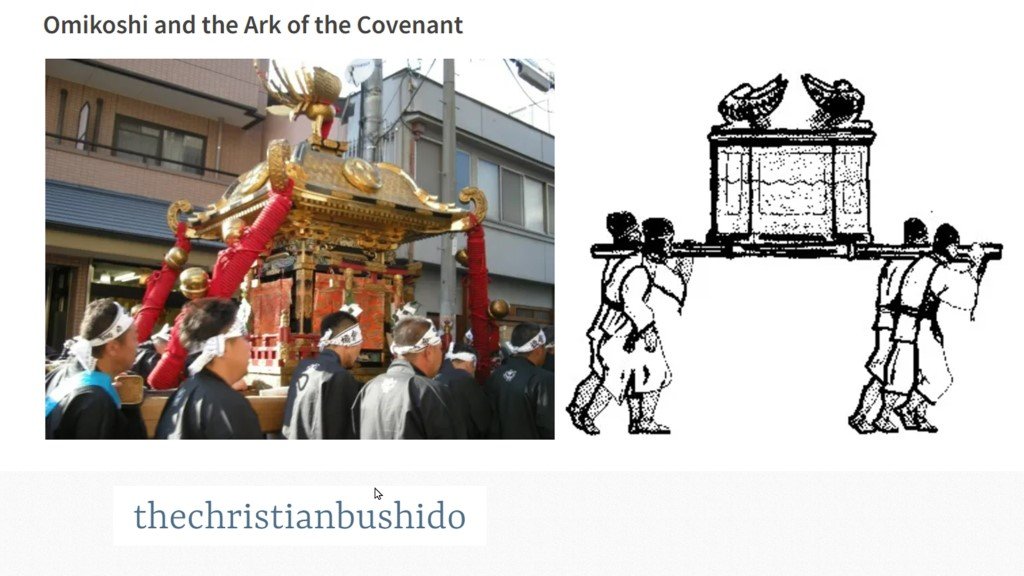
Israel’s harlotry
We examine Israel’s history of worshipping false Elohim.
Bemidbar (Numbers) 25:1-3
1 Now Israel remained in Acacia Grove, and the people began to commit harlotry with the women of Moav.
2 They invited the people to the sacrifices of their [false] elohim, and the people ate and bowed down to their [false] elohim.
3 So Israel was joined to Baal of Peor, and the anger of Yahweh was aroused against Israel.
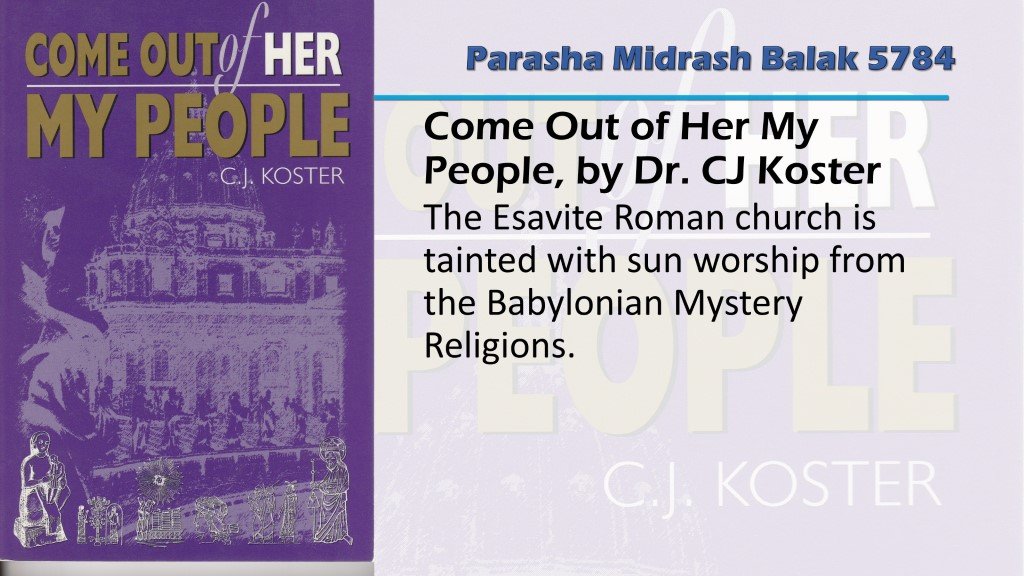
Melachim Bet (2 Kings) 17:9-10
9 Also the children of Israel secretly did against Yahweh their Elohim things that were not right, and they built for themselves high places in all their cities, from watchtower to fortified city.
10 They set up for themselves sacred pillars and wooden images on every high hill and under every green tree.
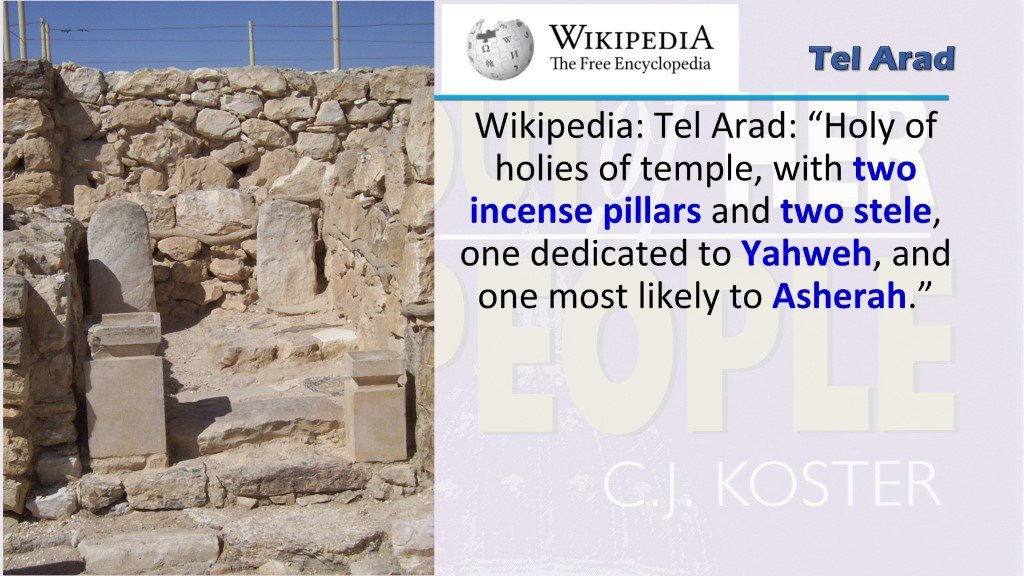
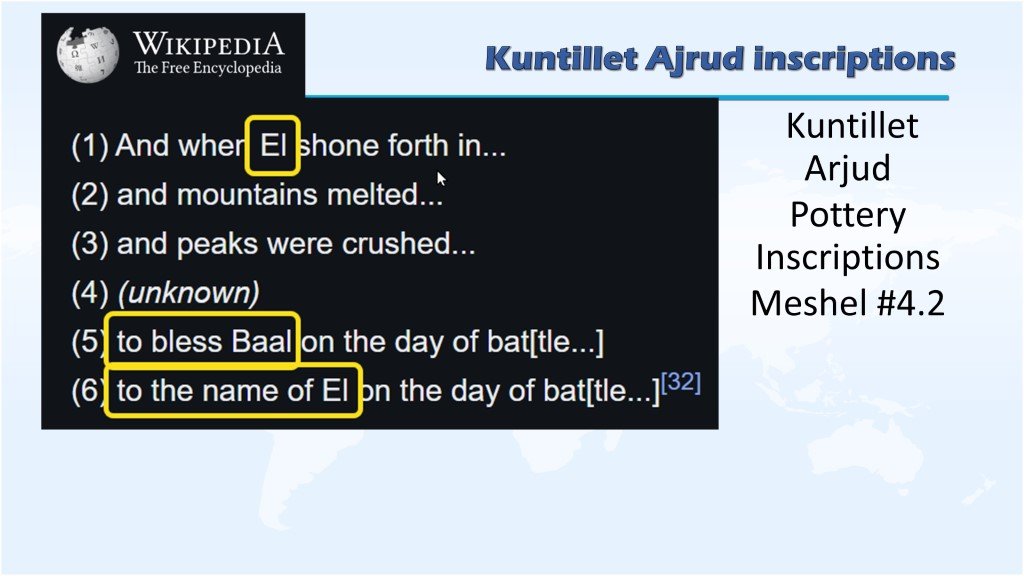
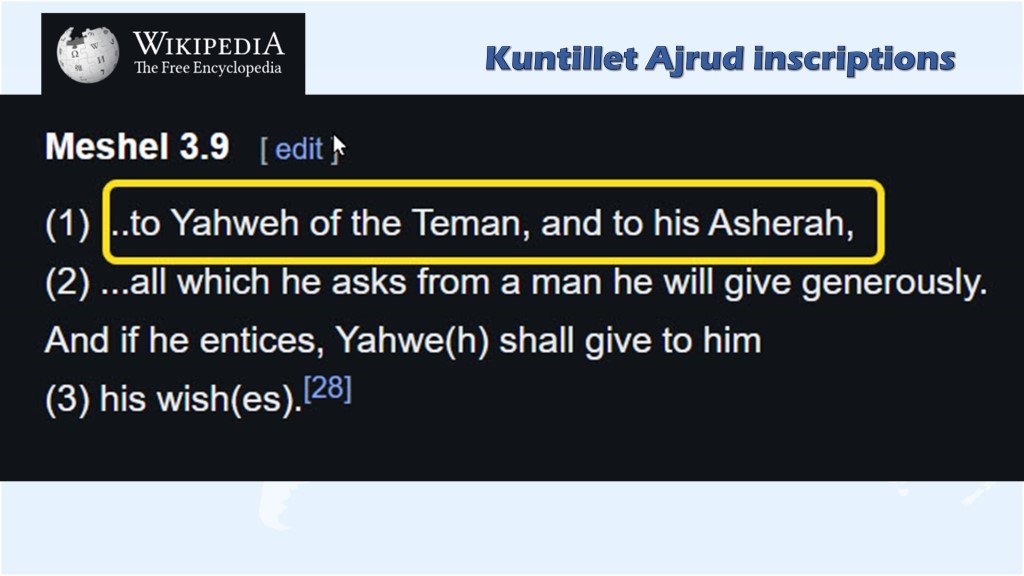
History of repentance
We see that there were a few times when Israel repented and turned back to Yahweh.
Melachim Bet (2 Kings) 18:1, 3
1 Now it came to pass in the third year of Hoshea the son of Elah, king of Israel, that Hezekiah the son of Ahaz, king of Judah, began to reign.
3 And he did what was right in the sight of Yahweh, according to all that his father David had done.Melachim Bet (2 Kings) 18:4
4 He removed the high places and broke the sacred pillars, cut down the wooden image and broke in pieces the bronze serpent that Moshe had made; for until those days the children of Israel burned incense to it, and called it Nehushtan.
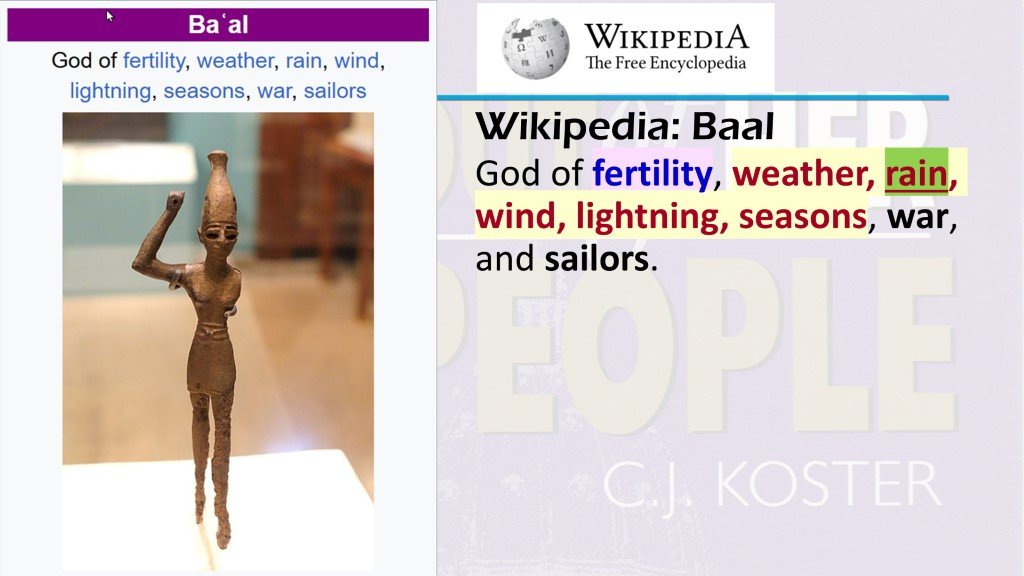
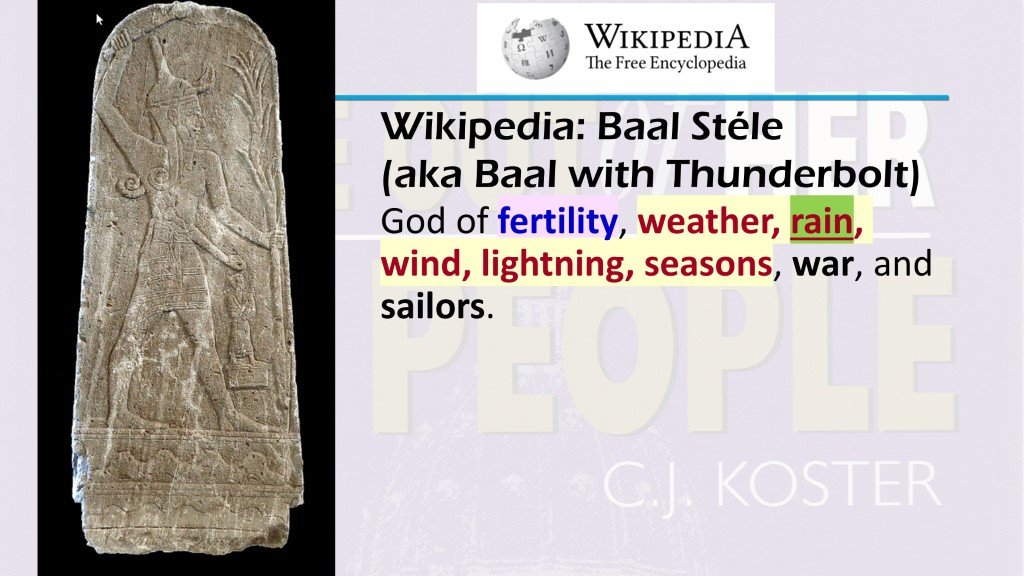

Yahweh’s name vs “The Lord”
We explain how worship of “The Lord” (Baal) was passed down throughout history, and how it continues in the Roman-Babylonian Church system today. And how just as Yeshua HaMashiach is manifestation of Yahweh, so false elohim are manifestations of Satan. (For more on how Yeshua is manifestation of Yahweh, please click the link below.)
Wikipedia: Baal
Scholars previously associated the theonym with solar cults and with a variety of unrelated patron deities, but inscriptions have shown that the name Ba’al was particularly associated with the storm and fertility god Hadad and his local manifestations.
The Baals (the Lords)
Wikipedia: Hadad
Hadad was also called … Baal–Zephon, [9] or often simply Baʿal (Lord), but this title was also used for other gods. The bull was the symbolic animal of Hadad. He appeared bearded,[10][11] often holding a club and thunderbolt and wearing a bull-horned headdress. [12][13]…Wikipedia: Hadad
… Hadad was equated with the Greek god Zeus, the Roman god Jupiter (Jupiter Dolichenus), as well as the Babylonian Bel…
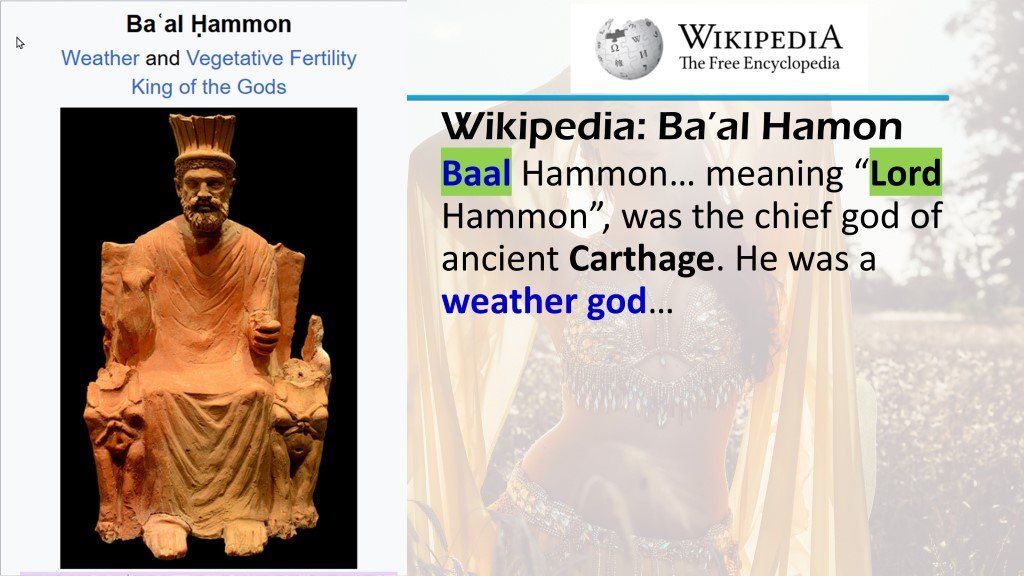
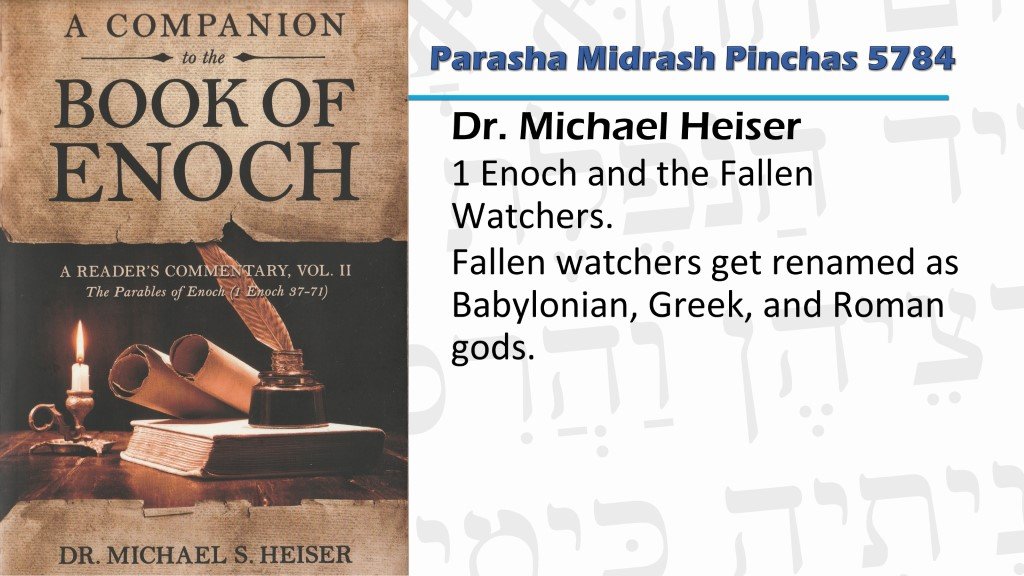
Wikipedia: Baal: Name: Epithets
Ba’al’s widely used epithet is “rider (or mounter [13]) of the clouds.” (rkb ‘rpt cf rkb b’rbt in Ps. 68:5; Ugaritic kb ‘rpt.) These are related to Zeus’s “gatherer of the clouds” and Yahweh’s “rider of the heavens.”Wikipedia: Baal: Name: Epithets
…As Baʿal Zaphon (Baʿal Ṣapunu), he was particularly associated with his palace atop Jebel Aqra (the ancient Mount Ṣapānu and classical Mons Casius).[46] He is also mentioned as “Winged Baʿal” (Bʿl Knp) and “Baʿal of the Arrows” (Bʿl Ḥẓ).[21]
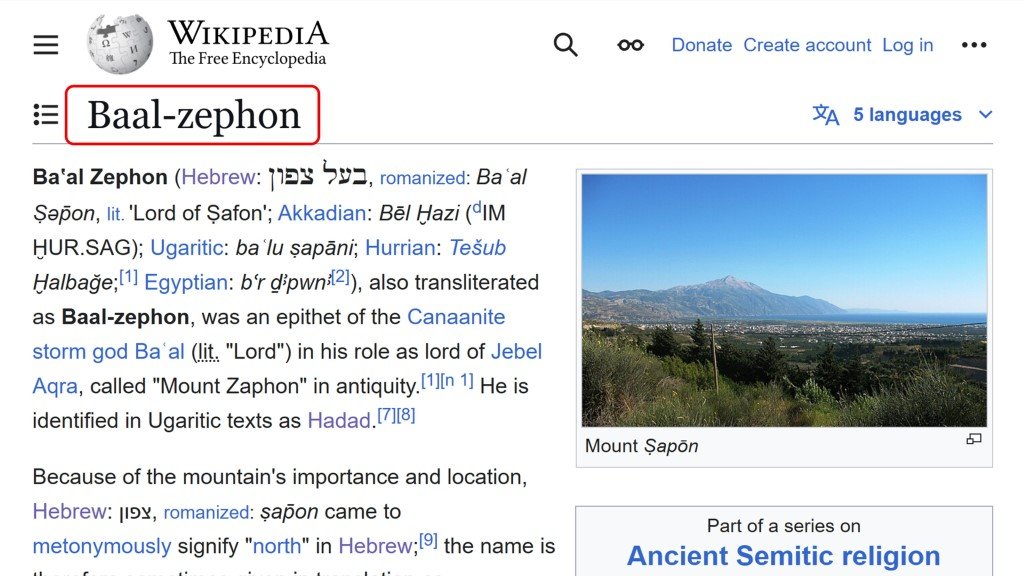
Wikipedia: Baal: Name: Epithets
…Phoenician and Aramaic inscriptions describe “Baʿal of the Mace” (Bʿl Krntryš), “Baʿal of the Lebanon” (Bʿl Lbnn), “Baʿal of Sidon” (Bʿl Ṣdn), Bʿl Ṣmd, “Baʿal of the Heavens” (Baʿal Shamem or Shamayin),[47] Baʿal ʾAddir (Bʿl ʾdr), Baʿal Hammon (Baʿal Ḥamon), Bʿl Mgnm.[29]
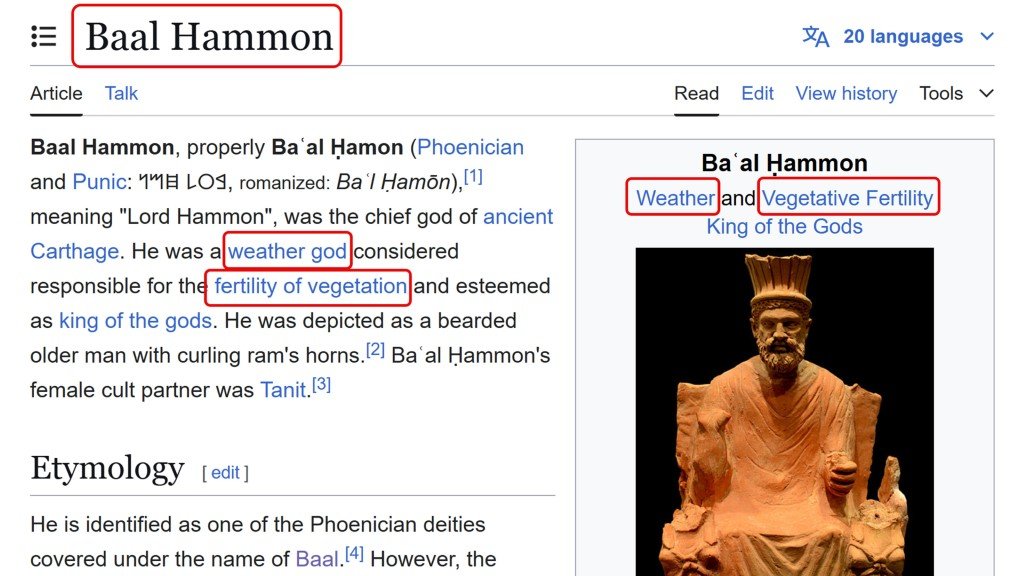
Israel joins to Baal of Peor
The zeal of Pinchas to do right before Yahweh.
Bemidbar (Numbers) 25:4-5
4 Then Yahweh said to Moshe, “Take all the leaders of the people and hang the offenders before Yahweh, out in the sun, that the fierce anger of Yahweh may turn away from Israel.”
5 So Moshe said to the judges of Israel, “Every one of you kill his men who were joined to Baal of Peor.”Strong’s Concordance H6465
פְּעוֹר pe‛ôr peh-ore’
From H6473; a gap; Peor, a mountain East of Jordan; also (for H1187) a deity worshipped there: – Peor.Bemidbar (Numbers) 25:6
6 And indeed, one of the children of Israel came and presented to his brethren a Midianite woman in the sight of Moshe and in the sight of all the congregation of the children of Israel, who were weeping at the door of the tabernacle of meeting.Bemidbar (Numbers) 25:7-8
7 Now when Pinchas the son of Eleazar, the son of Aharon the priest, saw it, he rose from among the congregation and took a javelin in his hand;
8 and he went after the man of Israel into the tent and thrust both of them through, the man of Israel, and the woman through her body. So the plague was stopped among the children of Israel.Bemidbar (Numbers) 25:9
9 And those who died in the plague were twenty-four thousand.
Torah portion:
Pinchas’ zeal for Yahweh
Yahweh’s reward to Pinchas, for doing what is right before Yahweh and turning away His wrath.
Bemidbar (Numbers) 25:10-11
10 Then Yahweh spoke to Moshe, saying:
11 “Phinehas the son of Eleazar, the son of Aharon the priest, has turned back My wrath from the children of Israel, because he was zealous with My zeal among them, so that I did not consume the children of Israel in My zeal.”Bemidbar (Numbers) 25:12-13
12 “Therefore say, ‘Behold, I give to him My covenant of peace;
13 “and it shall be to him and his descendants after him a covenant of an everlasting priesthood, because he was zealous for his Elohim, and made atonement for the children of Israel.’ “Bemidbar (Numbers) 25:14-15
14 Now the name of the Israelite who was killed, who was killed with the Midianite woman, was Zimri the son of Salu, a leader of a father’s house among the Simeonites.
15 And the name of the Midianite woman who was killed was Cozbi the daughter of Zur; he was head of the people of a father’s house in Midian.Tehillim (Psalms) 106:28-29
28 They joined themselves also to Baal of Peor, And ate sacrifices made to the dead.
29 Thus they provoked Him to anger with their deeds, And the plague broke out among them.Tehillim (Psalms) 106:30-31
30 Then Pinchas stood up and intervened, And the plague was stopped.
31 And that was accounted to him for righteousness To all generations forevermore.Strong’s Hebrew Concordance H6419
פָּלַל pâlal paw-lal’
A primitive root; to judge (officially or mentally); by extension to intercede, pray: – intreat, judge (-ment), (make) pray (-er, -ing), make supplication.
Israel’s census
Bemidbar (Numbers) 26:1-2
1 And it came to pass, after the plague, that Yahweh spoke to Moshe and Eleazar the son of Aharon the priest, saying:
2 “Take a census of all the congregation of the children of Israel from twenty years old and above, by their fathers’ houses, all who are able to go to war in Israel.”Bemidbar (Numbers) 26:52-53
52 Then Yahweh spoke to Moshe, saying:
53 “To these the land shall be divided as an inheritance, according to the number of names.
The daughters of Zelophehad and tribal inheritance
Bemidbar (Numbers) 27:1
1 Then came the daughters of Zelophehad the son of Hepher, the son of Gilead, the son of Machir, the son of Manasseh, from the families of Manasseh the son of Joseph; and these were the names of his daughters: Mahlah, Noah, Hoglah, Milcah, and Tirzah.Bemidbar (Numbers) 27:2
2 And they stood before Moshe, before Eleazar the priest, and before the leaders and all the congregation, by the doorway of the tabernacle of meeting, saying:Bemidbar (Numbers) 27:3-4
3 “Our father died in the wilderness; but he was not in the company of those who gathered together against Yahweh, in company with Korah, but he died in his own sin; and he had no sons.
4 “Why should the name of our father be removed from among his family because he had no son? Give us a possession among our father’s brothers.”Bemidbar (Numbers) 27:7-8
7 “The daughters of Zelophehad speak what is right; you shall surely give them a possession of inheritance among their father’s brothers, and cause the inheritance of their father to pass to them.
8 “And you shall speak to the children of Israel, saying: ‘If a man dies and has no son, then you shall cause his inheritance to pass to his daughter…”Bemidbar (Numbers) 27:12-13
12 Now Yahweh said to Moshe: “Go up into this Mount Avarim, and see the land which I have given to the children of Israel.
13 “And when you have seen it, you also shall be gathered to your people, as Aharon your brother was gathered.”
Moshe’s successor Joshua
Bemidbar (Numbers) 27:18-19
18 And Yahweh said to Moshe: “Take Joshua the son of Nun with you, a man in whom is the Spirit, and lay your hand on him;
19 set him before Eleazar the priest and before all the congregation, and inaugurate him in their sight.Bemidbar (Numbers) 27:20
20 And you shall give some of your authority to him, that all the congregation of the children of Israel may be obedient.
Yahweh’s appointed times
For more on the Torah Calendar and Yahweh’s appointed times according to the written Torah, please click the link below, and begin with “Aviv Barley Simplified”.
Bemidbar (Numbers) 28:1-2
1 Now Yahweh spoke to Moshe, saying,
2 “Command the children of Israel, and say to them, ‘My offering, My food for My offerings made by fire as a sweet aroma to Me, you shall be careful to offer to Me at their appointed time.’
Haftarah portion:
Israel, king Ahab, and Baal
King Ahab, the most wicked king of Israel recorded in Scripture.
Melachim Aleph (1 Kings) 16:30-31
30 Now Ahab the son of Omri did evil in the sight of Yahweh, more than all who were before him.
31 And it came to pass, as though it had been a trivial thing for him to walk in the sins of Jeroboam the son of Nebat, that he took as wife Jezebel the daughter of Ethbaal, king of the Sidonians; and he went and served Baal and worshiped him.Melachim Aleph (1 Kings) 16:32-33
32 Then he set up an altar for Baal in the temple of Baal, which he had built in Samaria.
33 And Ahab made a wooden image. Ahab did more to provoke Yahweh Elohim of Israel to anger than all the kings of Israel who were before him.Melachim Aleph (1 Kings) 17:1
1 And Eliyahu the Tishbite, of the inhabitants of Gilead, said to Ahav, “As Yahweh Elohim of Israel lives, before whom I stand, there shall not be dew nor rain these years, except at my word.”Melachim Aleph (1 Kings) 18:1-2
1 And it came to pass after many days that the word of Yahweh came to Eliyahu, in the third year, saying, “Go, present yourself to Ahav, and I will send rain on the earth.”
2 So Elijah went to present himself to Ahav; and there was a severe famine in Samaria.Melachim Aleph (1 Kings) 18:17-18
17 Then it happened, when Ahav saw Eliyahu, that Ahav said to him, “Is that you, O troubler of Israel?”
18 And he answered, “I have not troubled Israel, but you and your father’s house have, in that you have forsaken the commandments of Yahweh and have followed the Baals [the Lords].”
“The Lord” (“Baal”)
For more on why NI teaches the set-apart names, and does not call upon “The Lord” (or Baal), please see the study below on the set-apart names.
Yahweh forgotten for false elohim
History of worship of false elohim, and the continuation inside of Ephraim today.
Melachim Aleph (1 Kings) 18:19
19 “Now therefore, send and gather all Israel to me on Mount Carmel, the four hundred and fifty prophets of Baal, and the four hundred prophets of Asherah, who eat at Jezebel’s table.”Strong’s Concordance H842
אֲשֵׁירָה אֲשֵׁרָה ‘ăshêrâh ‘ăshêyrâh
ash-ay-raw’, ash-ay-raw’
From H833; happy; asherah (or Astarte) a Phoenician goddess; also an image of the same: – grove. Compare H6253.Strong’s Concordance H6253
עַשְׁתֹּרֶת ‛ashtôreth ash-to’-reth
Probably for H6251; Ashtoreth, the Phoenician goddess of love (and increase): – Ashtoreth.Strong’s Concordance H6251
עַשְׁתְּרָה ‛ashterâh ash-ter-aw’
Probably from H6238; increase: – flock.Strong’s Concordance H6238
עָשַׁר ‛âshar aw-shar’
A primitive root; properly to accumulate; chiefly (specifically) to grow (causatively make) rich: – be (-come, en-, make, make self, wax) rich, make [H1 Kings H22 : H48 margin]. See H6240.
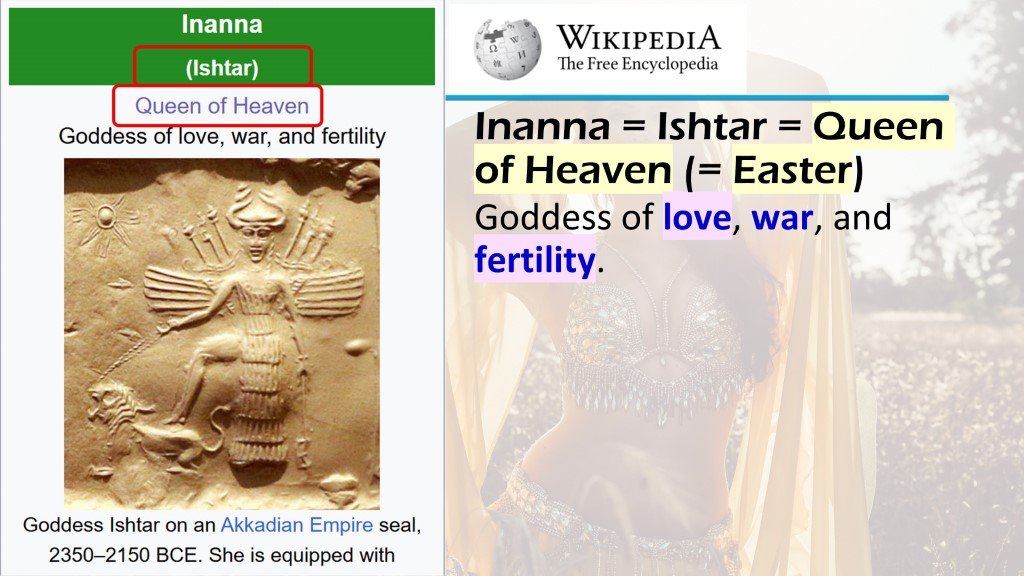

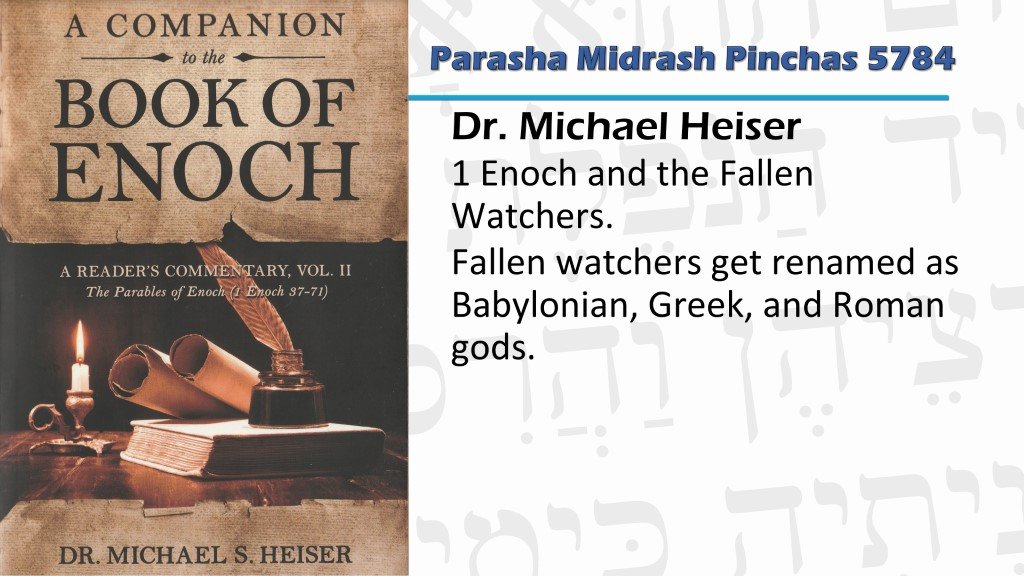
Yirmeyahu (Jeremiah) 44:17
17 “But we will certainly do whatever has gone out of our own mouth, to burn incense to the queen of heaven and pour out drink offerings to her, as we have done, we and our fathers, our kings and our princes, in the cities of Judah and in the streets of Jerusalem. For then we had plenty of food, were well-off, and saw no trouble…”

Yahweh hates being called “Baali”!
Hoshea (Hosea) 2:13
13 “I will punish her For the days of the Baals to which she burned incense. “She decked herself with her earrings and jewelry, “And went after her lovers; But Me she forgot,” says Yahweh.Hoshea (Hosea) 2:16-17
16 “And it shall be, in that day,” Says Yahweh, “That you will call Me ‘Ishi’, And no longer call Me ‘Ba’ali,’
17 For I will take from her mouth the names of the Baals, And they shall be remembered by their name no more.
For more on why NI does not use the pronunciation “Yehovah”, please see the study below.
Wikipedia: Ēostre: Saint Bede, 8th Century
“Eosturmonath has a name which is now translated “Paschal month”, and which was once called after a goddess of theirs named Eostre, in whose honour feasts were celebrated in that month. Now they designate that Paschal season by her name, calling the joys of the new rite by the time-honoured name of the old observance.[23]Wikipedia: Ēostre
Simek opined that a “spring-like fertility goddess” must be assumed rather than a “goddess of sunrise” regardless of the name, reasoning that “otherwise the Germanic goddesses (and matrons) are mostly connected with prosperity and growth“.Wikipedia: Queen of Heaven
This article is about the Marian title… For pre-Christian usage, see Queen of Heaven (antiquity). Queen of Heaven (Latin: Regina Caeli) is a title given by Christians to Mary, mother of Jesus, mainly in the Catholic Church and Eastern Orthodoxy, and, to a lesser extent, in Anglicanism and Lutheranism.Wikipedia: Queen of Heaven
…The Catholic Church from the earliest times venerated the Queen of Heaven, according to Pius XII: “From the earliest ages of the Catholic Church a Christian people, whether in time of triumph or more especially in time of crisis, has addressed prayers of petition and hymns of praise and veneration to the Queen of Heaven…”Wikipedia: Queen of Heaven
“…and never has that hope wavered which they placed in the Mother of the Divine King, Jesus Christ; nor has that faith ever failed by which we are taught that Mary, the Virgin Mother of God, reigns with a mother’s solicitude over the entire world, just as she is crowned in heavenly blessedness with the glory of a Queen.” [Pope Pius XII]
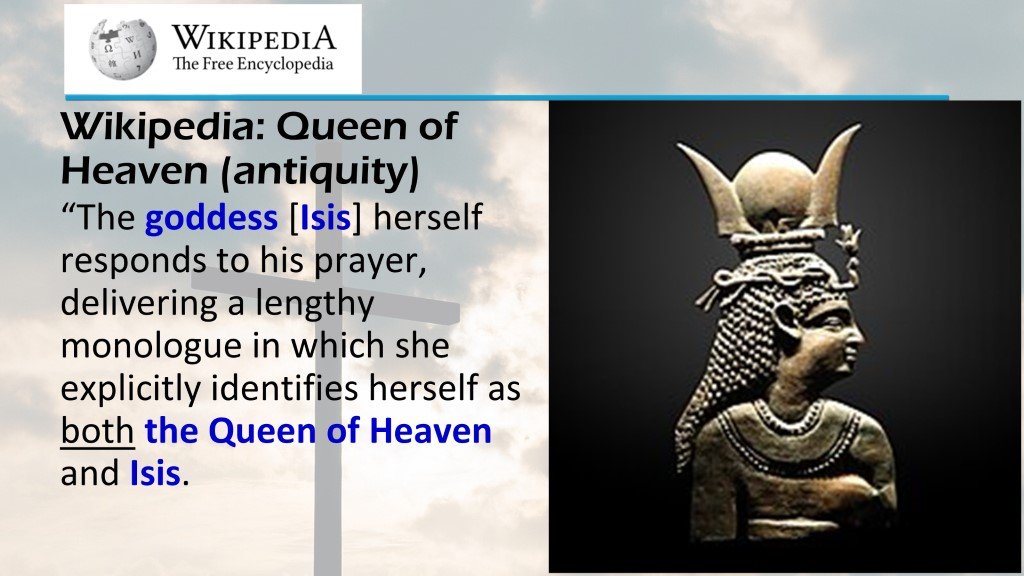
Eliyahu challenges prophets of Baal
Melachim Aleph (1 Kings) 18:20-21
20 So Ahav sent for all the children of Israel, and gathered the prophets together on Mount Carmel.
21 And Eliyahu came to all the people, and said, “How long will you falter between two opinions? If Yahweh is Elohim, follow Him; but if Baal, follow him.” But the people answered him not a word.Melachim Aleph (1 Kings) 18:22
22 Then Eliyahu said to the people, “I alone am left a prophet of Yahweh; but Baal’s prophets are four hundred and fifty men…”Melachim Aleph (1 Kings) 18:23
23 “Therefore let them give us two bulls; and let them choose one bull for themselves, cut it in pieces, and lay it on the wood, but put no fire under it; and I will prepare the other bull, and lay it on the wood, but put no fire under it.Melachim Aleph (1 Kings) 18:24
24 Then you call on the name of your [false] gods, and I will call on the name of Yahweh; and the Elohim who answers by fire, He is Elohim.” So all the people answered and said, “It is well spoken.”Melachim Aleph (1 Kings) 18:31-32
31 And Eliyahu took twelve stones, according to the number of the tribes of the sons of Jacob, to whom the word of Yahweh had come, saying, “Israel shall be your name.”
32 Then with the stones he built an altar in the name of Yahweh; and he made a trench around the altar large enough to hold two seahs of seed.Melachim Aleph (1 Kings) 18:33
33 And he put the wood in order, cut the bull in pieces, and laid it on the wood, and said, “Fill four waterpots with water, and pour it on the burnt sacrifice and on the wood.”Melachim Aleph (1 Kings) 18:34-35
34 Then he said, “Do it a second time,” and they did it a second time; and he said, “Do it a third time,” and they did it a third time.
35 So the water ran all around the altar; and he also filled the trench with water.Melachim Aleph (1 Kings) 18:37-38
37 “Hear me, O Yahweh, hear me, that this people may know that You are Yahweh Elohim, and that You have turned their hearts back to You again.”
38 Then the fire of Yahweh fell and consumed the burnt sacrifice, and the wood and the stones and the dust, and it licked up the water that was in the trench.Melachim Aleph (1 Kings) 18:40-41
40 And Eliyahu said to them, “Seize the prophets of Baal! Do not let one of them escape!” So they seized them; and Elijah brought them down to the Brook Kishon and executed them there.
41 Then Eliyahu said to Ahav, “Go up, eat and drink; for there is the sound of abundance of rain.”
Small still voice
Are we listening for His small, still voice?
Melachim Aleph (1 Kings) 19:9
9 And there he went into a cave, and spent the night in that place; and behold, the word of Yahweh came to him, and He said to him, “What are you doing here, Eliyahu?”Melachim Aleph (1 Kings) 19:10
10 So he said, “I have been very zealous for Yahweh Elohim of hosts; for the children of Israel have forsaken Your covenant, torn down Your altars, and killed Your prophets with the sword. I alone am left; and they seek to take my life.”Melachim Aleph (1 Kings) 19:11
11 Then He said, “Go out, and stand on the mountain before Yahweh.” And behold, Yahweh passed by, and a great and strong wind tore into the mountains and broke the rocks in pieces before Yahweh, but Yahweh was not in the wind; and after the wind an earthquake, but Yahweh was not in the earthquake…Melachim Aleph (1 Kings) 19:12
12 and after the earthquake a fire, but Yahweh was not in the fire; and after the fire a still small voice.Shemote (Exodus) 19:5-6
5 “Now therefore, if you will indeed obey My voice and keep My covenant, then you shall be a special treasure to Me above all people; for all the earth is Mine.
6 “And you shall be to Me a kingdom of priests and a set-apart nation.’ These are the words which you shall speak to the children of Israel.”
Brit Chadasha portion:
“Do not make My Father’s house a house of merchandise!”
Yochanan (John) 2:13-14
13 Now the Pesach of the Jews was at hand, and Yeshua went up to Jerusalem.
14 And He found in the temple those who sold oxen and sheep and doves, and the money changers doing business.Yochanan (John) 2:15-16
15 When He had made a whip of cords, He drove them all out of the temple, with the sheep and the oxen, and poured out the changers’ money and overturned the tables.
16 And He said to those who sold doves, “Take these things away! Do not make My Father’s house a house of merchandise!”

Are we zealous to hear and obey Yahweh?
Yochanan (John) 2:17
17 Then His disciples remembered that it was written, “Zeal for Your house has eaten me up.”Bemidbar (Numbers) 25:10-11
10 Then Yahweh spoke to Moshe, saying:
11 “Phinehas the son of Eleazar, the son of Aharon the priest, has turned back My wrath from the children of Israel, because he was zealous with My zeal among them, so that I did not consume the children of Israel in My zeal.”Bemidbar (Numbers) 25:12-13
12 “Therefore say, ‘Behold, I give to him My covenant of peace;
13 “and it shall be to him and his descendants after him a covenant of an everlasting priesthood, because he was zealous for his Elohim, and made atonement for the children of Israel.’ “Ivrim (Hebrews) 6:19-20
19 This hope we have as an anchor of the soul, both sure and steadfast, and which enters the Presence behind the veil,
20 where the forerunner has entered for us, even Yeshua, having become High Priest forever according to the order of Melchizedek.
Shabbat shalom.
Support the Great Commission on PayPal
Support the Great Commission on Patreon
We thank Yahweh Elohim for your love for His kingdom.

